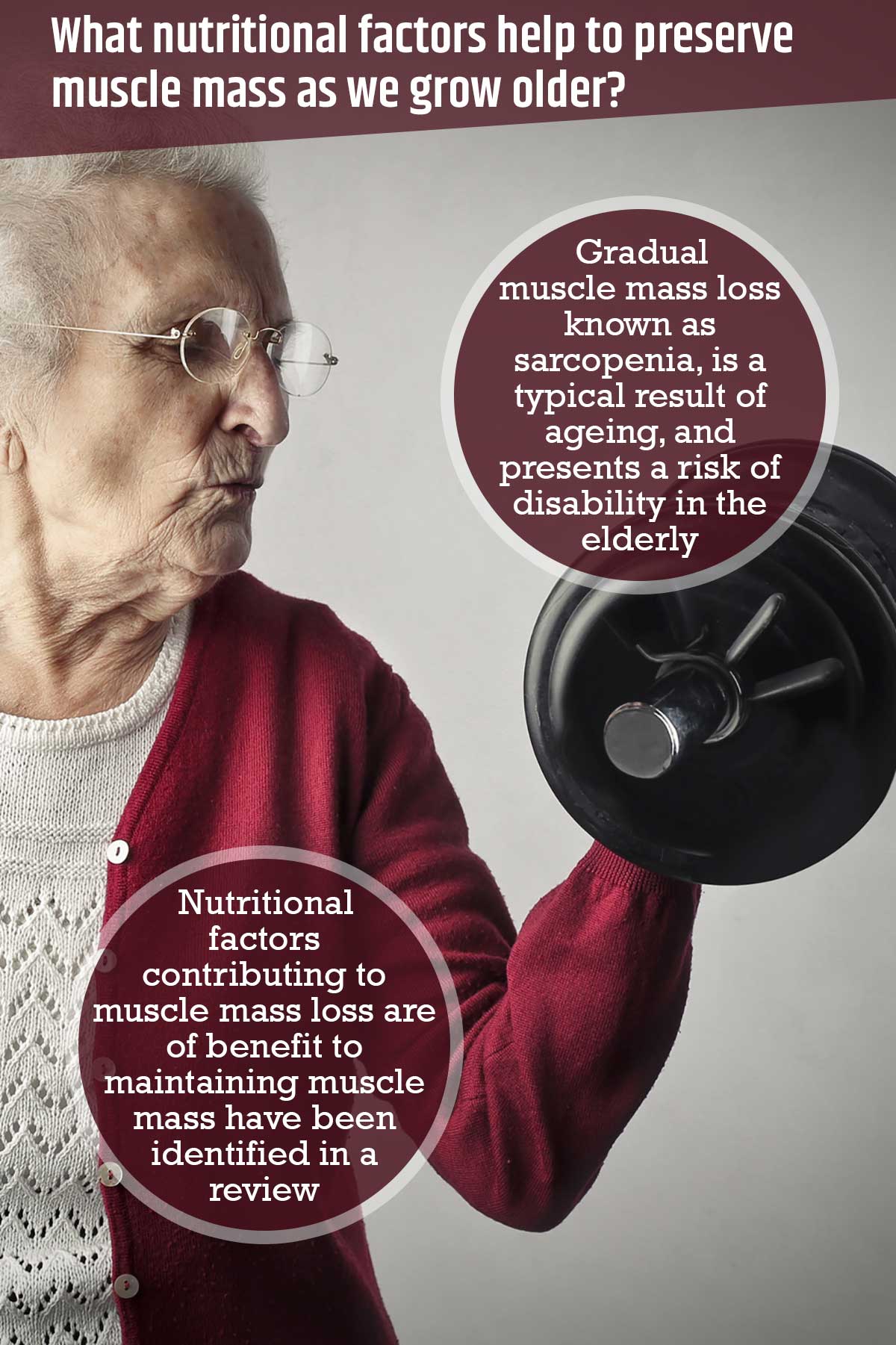Gradual muscle mass loss known as sarcopenia, is a typical result of ageing, and presents a risk of disability in the elderly. Since muscle strength plays a significant part in the risk of falls, sarcopenia contributes to an increased fracture risk as well as other injuries.
Nutritional factors contributing to muscle mass loss, on the other hand, are of benefit to maintaining muscle mass have been identified in a review.
Research on nutrition’s role in sarcopenia from around the world was reviewed, mainly looking at acid/base balance, protein, calcium/vitamin D, as well as other minor nutrients such as B vitamins.1✅ JOURNAL REFERENCE
DOI: 10.1007/s00198-012-2236-y
Resistance training exercise is the best intervention against sarcopenia. An optimum dietary acid/base balance as well as adequate nutritional intake are however also important elements for any muscle mass preserving strategy.
Nutritional factors which have been shown to be of benefit for maintaining muscle mass and treating and preventing sarcopenia were identified in the review.
Protein and muscle mass:
Intake of protein plays a vital role in muscle health. A daily intake is proposed of 1.0 to 1.2 grams of protein per kilogram of body weight as optimal for bone health and skeletal muscle in older individuals not having impaired renal function.
Vitamin D and muscle mass:
Vitamin D’s role in developing and preserving muscle function and mass is indicated in many studies, so adequate vitamin D needs to be obtained through sunlight exposure or/and supplementation if necessary.
Supplementation of vitamin D in elderly individuals, and particularly in older individuals who are institutionalized, is a recommendation for optimum musculoskeletal health.
Acidity and muscle mass:
Excessive acid producing nutrient intake combined with low alkalizing vegetable and fruit intake could affect musculoskeletal health negatively. Both bones and muscles are likely to benefit by changing the diet to include more vegetables and fruit.
Growing evidence also indicates that folic acid and/or vitamin B12 play a part in the improvement of muscle strength and function.



